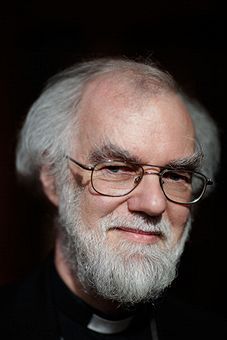 “Nowadays politicians want to talk about moral issues, and bishops want to
talk politics,” said Sir Humphrey.
“Nowadays politicians want to talk about moral issues, and bishops want to
talk politics,” said Sir Humphrey.
This week’s New Statesman has been guest edited by the Archbishop of Canterbury. In his lead editorial, Dr Rowan Williams has launched a brutally eloquent assault on the coalition for embarking on a programme of radical reform for which, he claims, there is no mandate. With particular reference to the health and education reforms, Williams says:
“With remarkable speed, we are being committed to radical, long-term policies for which no one voted. At the very least, there is an understandable anxiety about what democracy means in such a context.”
Not for the first time, Williams has attacked the Big Society, which he describes as “painfully stale” and an “opportunistic cover” for cuts.
Do the views of the Archbishop of Canterbury matter? Not especially, I would argue, in this secular age. Besides, the archbishop has form when it comes to making ill-judged public statements, which have perhaps damaged his credibility.
However, a salvo of righteousness from Lambeth Palace still counts for something, in presentational terms at least. There are clear echoes of Robert Runcie’s evisceration of the Thatcher government; but on this occasion Williams has challenged the government’s democratic legitimacy, a test that Thatcher did not face.
The government’s response matters more than Williams’ original comments because it will drive the story. As Benedict Brogan notes, the government can answer most of Williams’ charges with ease. Equally, by what democratic right does this appointed prelate interfere in temporal matters? But the government must tread carefully: political aggression against clerics has an unhappy history in Britain.






Comments